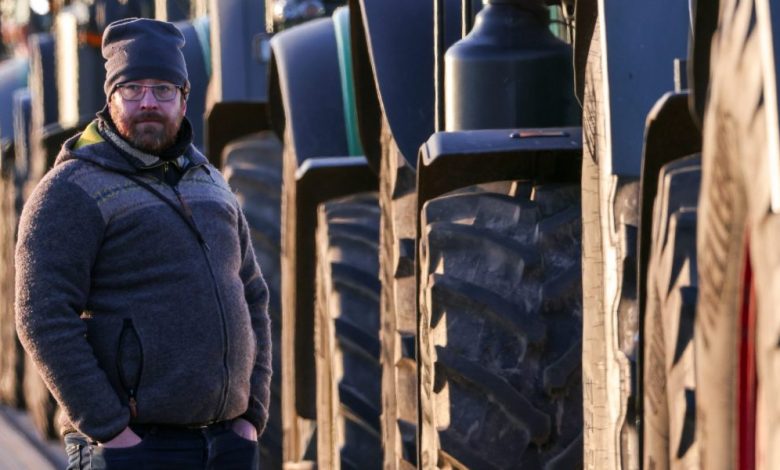“Right to repair”: Farmers cannot repair defective machines

On Colorado’s northeastern plains, where the pencil-straight horizon separates golden fields and blue skies, a farmer named Danny Wood strives to plant and harvest short, seasonal windows of proso sorghum, dryland corn, and winter wheat. Until his high-tech Steiger 370 tractor gave up the ghost.
The tractor’s manufacturer doesn’t allow Wood to make certain repairs himself, and last spring his fertilizing operations were suspended for three days before the servicer arrived to add a few lines of missing computer code for $950.
“That’s where they got us over the barrel, it’s more like we rent it than buy it,” said Wood, who spent $300,000 on the used tractor.
Wood’s plight, which is being picked up on by farmers across the country, has pushed lawmakers in Colorado and 10 other states to introduce legislation that would force manufacturers to provide the tools, software, parts and manuals that farmers need for their own need repairs – avoiding high labor costs and delays that jeopardize profits.
“The manufacturers and dealers have a monopoly in this repairs market because it’s lucrative,” said Rep. Brianna Titone, a Democrat and one of the sponsors of the bill. “(Farmers) just want to get their machine running again.”
In Colorado, legislation is largely being driven by the Democrats, while their Republican counterparts find themselves in a difficult spot: torn between right-wing agricultural voters asking to be allowed to fix their own machines and the manufacturers who embrace the idea oppose.
Manufacturers argue that changing current practice with this type of legislation would force companies to disclose trade secrets. They also say it would be easier for farmers to tinker with the software and illegally increase power and bypass the emissions controller – risking operator safety and the environment.
Similar intellectual property arguments have been made against the broader Right to Repair campaign, which has been gaining momentum across the country – campaigning for the right to fix everything from iPhones to hospital ventilators during the pandemic.
In 2011, Congress passed legislation ensuring car owners and independent mechanics — not just authorized dealers — have access to the tools and information necessary to troubleshoot problems.
Ten years later, the Federal Trade Commission pledged to strengthen its right to restore enforcement at the direction of President Joe Biden. And just last year, Titone sponsored and passed Colorado’s First Right to Repair Act, which gives people who use wheelchairs the tools and information to repair them.
Colorado is joined by 10 states, including Florida, Maryland, and Missouri, for the right to repair farm equipment — from skinny tractors used between vines to gigantic grain harvesters that can cost over half a million dollars , New Jersey, Texas and Vermont.
Many of the bills have bipartisan support, said Nathan Proctor, who leads the Public Interest Research Group’s national Right to Repair campaign. But in the Colorado House Agriculture Committee, Democrats pushed the bill 9-4 along the party line, with Republicans opposing, though the bill’s second sponsor is Republican Rep. Ron Weinberg.
“It’s really surprising, and it upset me,” Republican Wood said.
Wood’s tractor, which flies an American flag that says Farmers First, isn’t his only machine to break down. His grain harvester went idle, but it took the servicer five days to arrive at Woods Farm — a setback that could mean a hailstorm decimates a wheat field or the soil temperature for sowing rises above the Goldilocks zone.
“Our crop is ready to be harvested and we can’t wait five days, but there was nothing else to do,” Wood said. “If it’s broken, you just sit there and wait, and that’s not acceptable. You can lose $85,000 a day.”
Rep. Richard Holtorf, the Republican representing Woods District and a farmer himself, said he is being drawn between his constituents and the merchants in his district, which covers the largely rural northeast corner of the state. He voted against the measure because he believes it could financially affect local traders in rural areas and jeopardize trade secrets.
“I sympathize with my farmers,” Holtorf said, but added, “I don’t think it’s the government’s job to force the sale of their intellectual property.”
At last week’s crowded hearing, which spilled into a second room in the Colorado Capitol, the core concerns raised in testimonies were farmers illegally circumventing emissions controls and revving up horsepower.
“I know growers, if they can change the horsepower and emissions, they will,” said Russ Ball, sales manager at 21st Century Equipment, a John Deere dealer in the western states.
Supporters of the bill conceded that the legislation could make it easier for operators to change horsepower and emissions controls, but argued that farmers were already able to tinker with their machines and it remained illegal to do so.
This January, the Farm Bureau and farm equipment manufacturer John Deere signed a Memorandum of Understanding – a free-market right-to-repair agreement without government interference. Under the agreement, John Deere will share some parts, diagnostic and repair codes, and manuals so farmers can do their own repairs.
Colorado law critics hailed the agreement as a strong middle ground, while Titone said it was not enough, as evidenced by six of Colorado’s largest farm workers’ organizations that support the law.
Proctor, which is pursuing 20 Right to Repair proposals in a range of industries across the country, said the MOU fell far short of expectations.
“Farmers say no,” Proctor said. “We want the real thing”
___
Jesse Bedayn is a corps member for the Associated Press/Report for America Statehouse News Initiative. Report for America is a nonprofit national service program that brings journalists into local newsrooms to cover undercover topics.
Learn how to navigate and build trust in your organization with The Trust Factor, a weekly newsletter exploring what leaders need to succeed. Login here.



